Apple 'not told' about UK's latest app plans
- Published
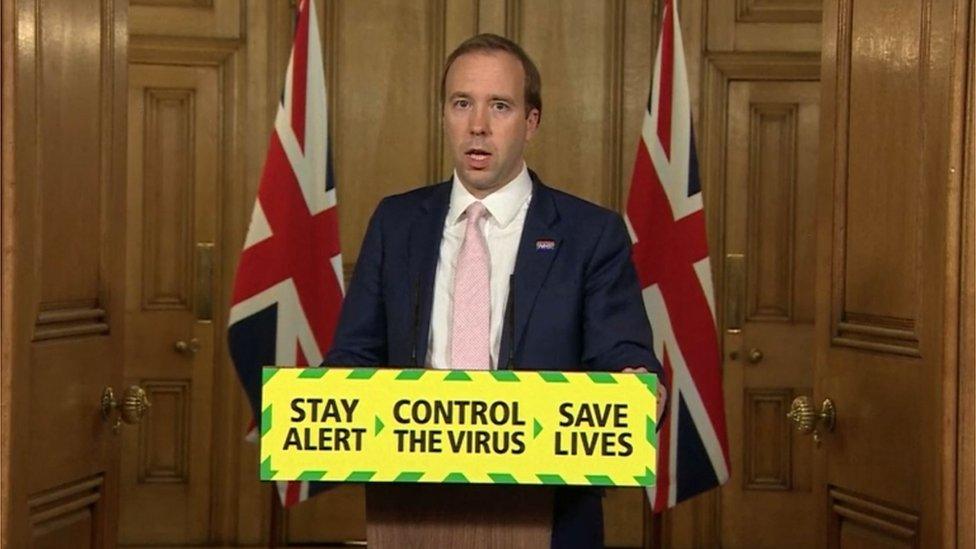
Apple said it did not know about a proposed "hybrid" version of the contact-tracing app announced by Matt Hancock
Apple says it did not know the UK was working on a "hybrid" version of the NHS coronavirus contact-tracing app using tech it developed with Google.
The firm took the unusual step of saying it was also unaware of an issue regarding distance-measuring, which was flagged by Health Secretary Matt Hancock in Thursday's daily briefing.
Apple said it was "difficult to understand" the claims.
Downing Street said the government had "worked closely with Apple and Google".
In tests carried out in the UK, there were occasions when software tools developed by Apple and Google could not differentiate between a phone in a user's pocket 1m (3.3ft) away and a phone in a user's hand 3m (9.8ft) away.
During the briefing, Mr Hancock said: "Measuring distance is clearly mission critical to any contact-tracing app."
However, speaking to the Times, external, Apple said: "It is difficult to understand what these claims are as they haven't spoken to us."
The firm also pointed out that the tech was already either in use or intended for use in Germany, Italy, the Netherlands and Ireland.
The tech giant also expressed surprise that the UK was working on a new version of the contact-tracing app which incorporated the Apple-Google software tool.
"We've agreed to join forces with Google and Apple, to bring the best bits of both systems together," Mr Hancock said.
However, Apple said: "We don't know what they mean by this hybrid model. They haven't spoken to us about it."
It told the BBC it had nothing further to add.
On Friday, the Department of Health said the NHS's digital innovation unit had indeed discussed its ambitions with Apple.
"NHSX has been working with Google and Apple extensively since their API [application programming interface ] was made available," it told the BBC.
"Over the last few weeks, senior representatives from NHSX and Apple have had productive meetings to discuss both products and future direction.
"There is a commitment between the teams to work together to improve the distance measurement technology, which is integral to have a fully functioning contract-tracing app."
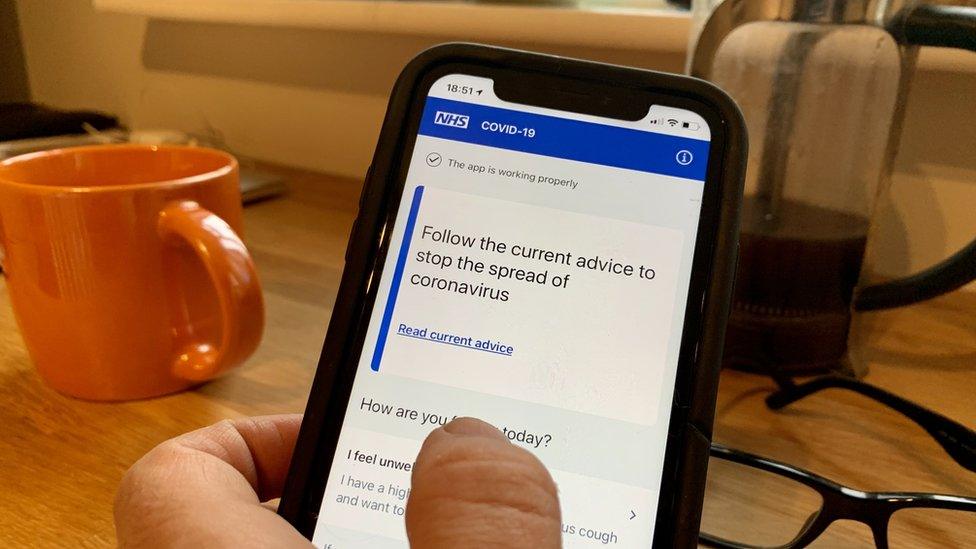
The original NHS app has now been abandoned
Google said yesterday that it welcomed the government's announcement.
A Downing Street spokesman said the government continued to work closely with both Apple and Google on the app, and had done so since development began.
"We've agreed with them to take forward our work on estimating distance through the app that we've developed and work to incorporate that into their app," he said.
Apple and Google have not created an app.
What they have built is a software tool which enables contact-tracing apps to work more smoothly with both iPhones and Android devices, but which does not store any data centrally.
The UK wanted to store the data as it argued it would be useful for scientists tracking the spread of Covid-19.
Apple's choice
Dr David Bonsall from Oxford University, who is an adviser to the NHS app developers, told the BBC the tech giant had made a choice not to support the UK's original model.
"Ultimately, a decision was taken by Apple to not support the centralised system that had been in development by the UK from March, and six weeks before they announced their own system under a decentralised model," he said.
"And that has got to be considered in our reflection on the situation that the UK now faces."
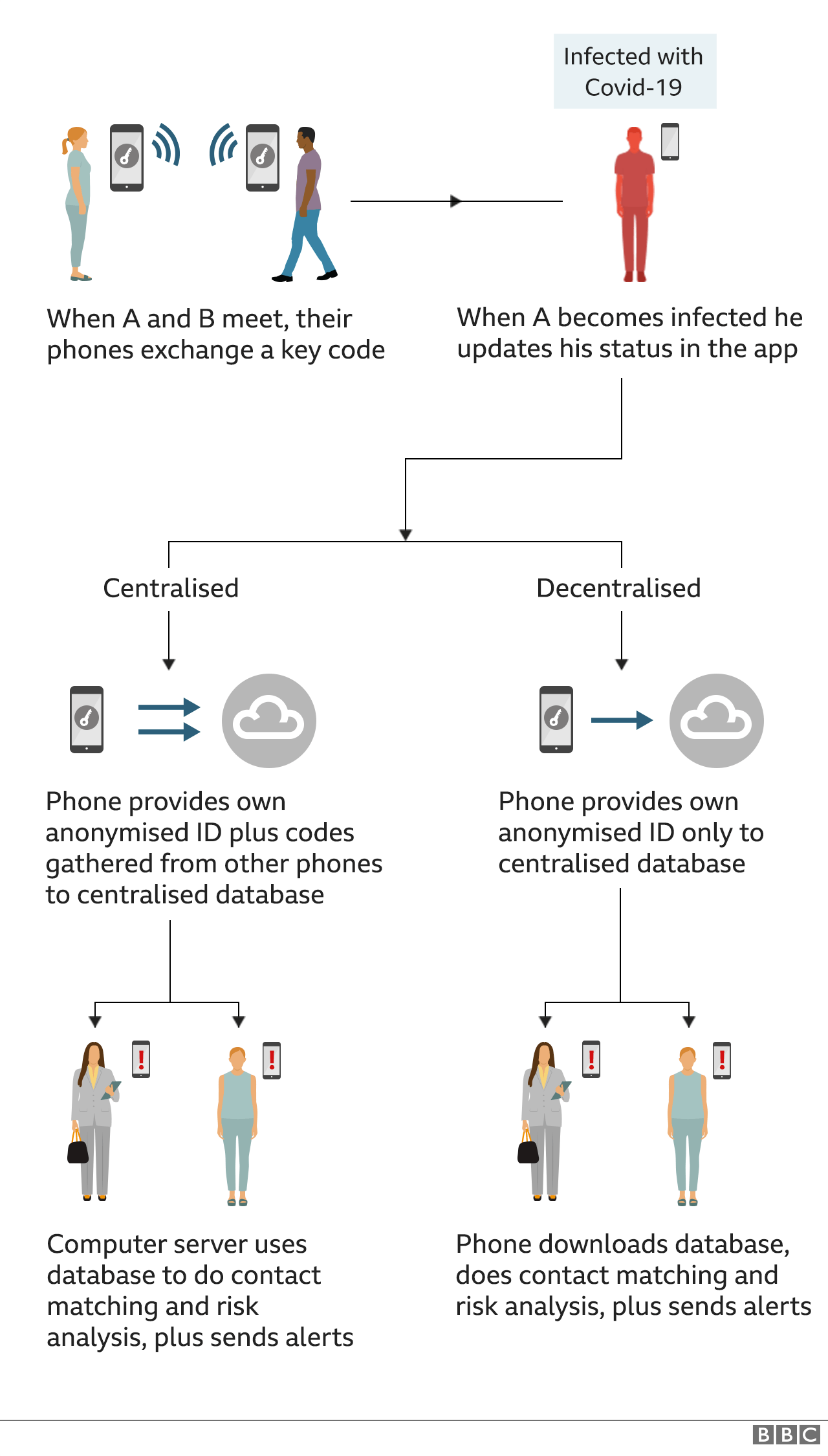
The now-abandoned NHS app was tested on the Isle of Wight where it was downloaded more than 50,000 times.
However, it registered only about 4% of the iPhones that were nearby.
Islanders have now been asked to delete it.
It's not the first time the government has clashed with Apple over an app - in 2018 an app built to help EU citizens apply to remain in the UK after Brexit was also found to not work properly on iPhones.
On that occasion Apple did eventually agree to make the necessary changes to its system.
- Published17 June 2020

- Published15 June 2020
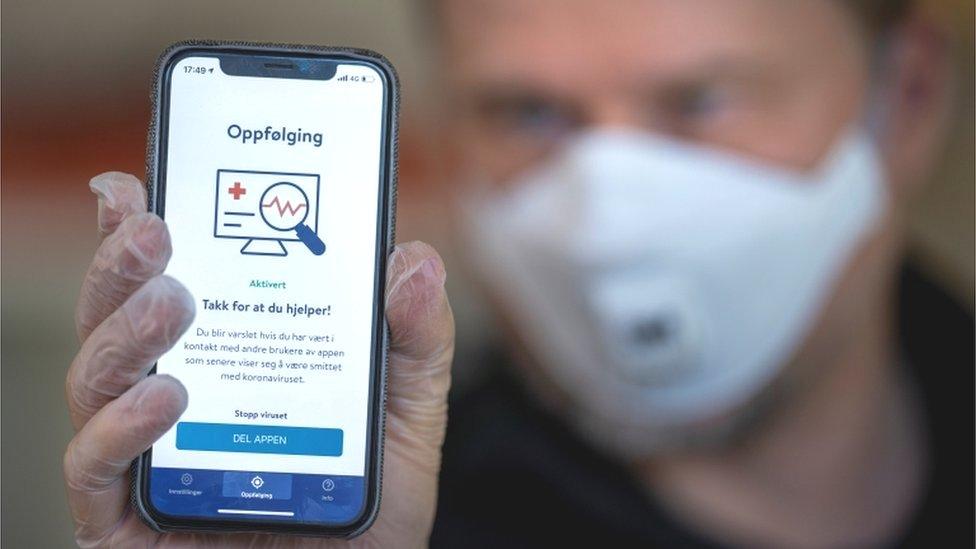
- Published18 June 2020
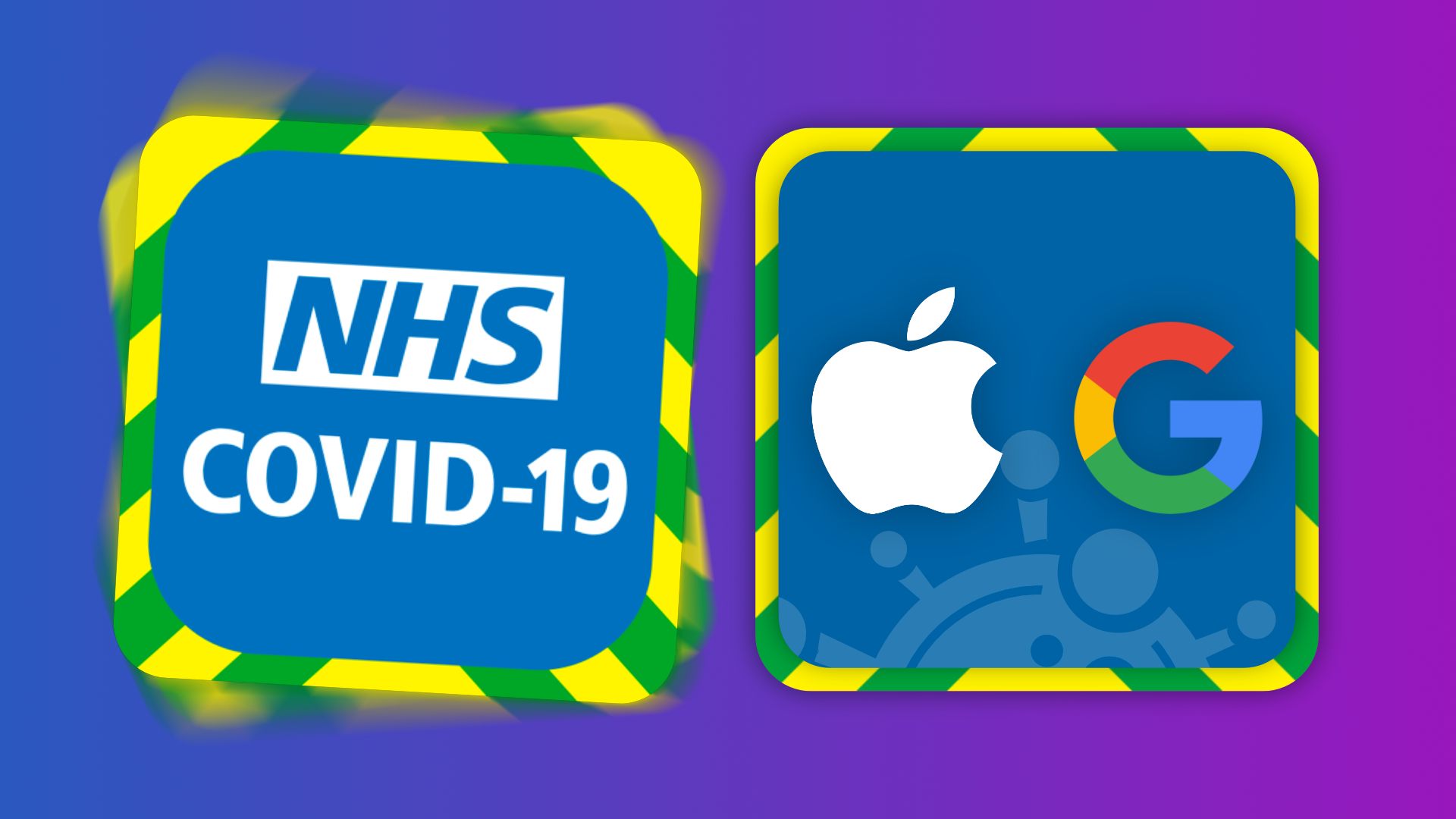
- Published24 April 2020
